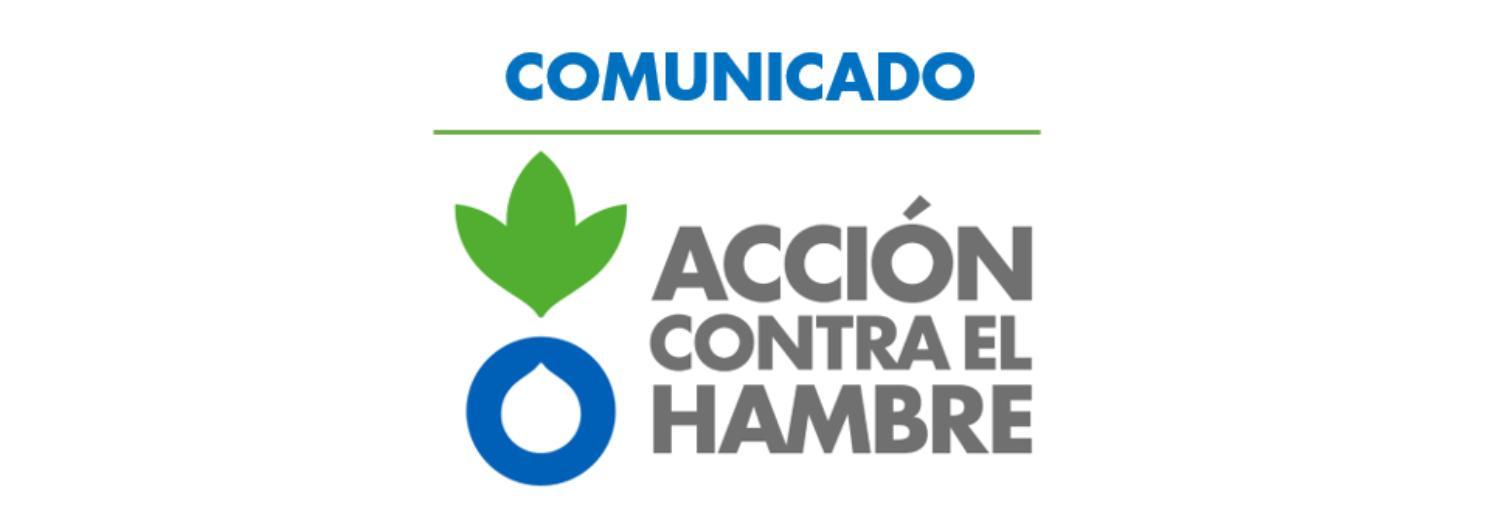News
Action Against Hunger is responding to the crisis in Gaza by distributing blankets and hygiene products
16/10/23

EMERGENCY TEAMS ARE PREPARING TO PROVIDE CLEAN WATER, FOOD AND CASH ASSISTANCE AS SOON AS POSSIBLE
"Today, 16 October, is World Food Day, although we prefer to call it International Day for the Fight Against Hunger," says Oliver Longué, CEO of Action Against Hunger, "but today it is impossible to talk about hunger without looking at what is happening in the Occupied Palestinian Territory. We need to help millions of families and children who are in dire need, trapped in conflict".
Action Against Hunger teams are already coordinating with international and local actors in the humanitarian response to this severe crisis. "We are responding to the needs of the affected population in Gaza with the distribution of non-food items such as blankets and hygiene products," says Chiara Saccardi, Action Against Hunger's regional head in the Middle East, "and we want to extend our intervention to water and sanitation.
At the moment," explains Chiara Saccardi, "we have suppliers in Gaza who have stocks so that we can distribute basic short-term supplies such as water, food, hygiene products, nappies, blankets and mattresses as efficiently and quickly as possible. All this is to alleviate the suffering of the families and the thousands of people affected.
Olivier Longué, back on Monday after visiting Action Against Hunger programmes in Syria and Lebanon, says: "The level of needs is rising alarmingly in all these countries. In the area, our organisation is working on basic needs such as food distribution for children, pregnant mothers or vulnerable families and on water and sanitation infrastructure programmes, which are essential for a region with such a scarcity of water and lack of hygiene that can lead to pandemics such as the cholera pandemic that hit Lebanon last year".
For the fifth consecutive day, Gaza has been without electricity, affecting the provision of basic services such as water, sanitation and access to food. Food insecurity is only worsening, the total blockade imposed not only prevents the entry of humanitarian aid or supplies, but has disrupted refrigeration, irrigation and other systems essential for agricultural work. Moreover, the number of families moving south in such a short period of time is overwhelming the capacity of the area.
Our colleagues and their families, who have also been internally displaced fleeing the bombs, tell us that even when shops are open, it is very dangerous to try to access them to get food or water because a ceasefire has not yet been reached.
Another major concern is the lack of access to water. It is estimated that only 3 litres of water per person is available for 2.3 million people living in Gaza, half of whom are children. Moreover, this amount is likely to decrease by the day as supplies and fuel used in desalination plants are reduced.
Faced with this impossible situation, most Gazan families are resorting to non-drinking water sources, such as agricultural wells. This puts them at imminent risk of dehydration and even an outbreak of infectious diseases such as cholera. Such an epidemic, if it happens, would make this serious crisis an even bigger problem.
Among those most at risk from water shortages and diarrhoeal diseases are children under five. This is the leading cause of child mortality globally and in this case adds to the many other vulnerabilities caused by violence against civilians.